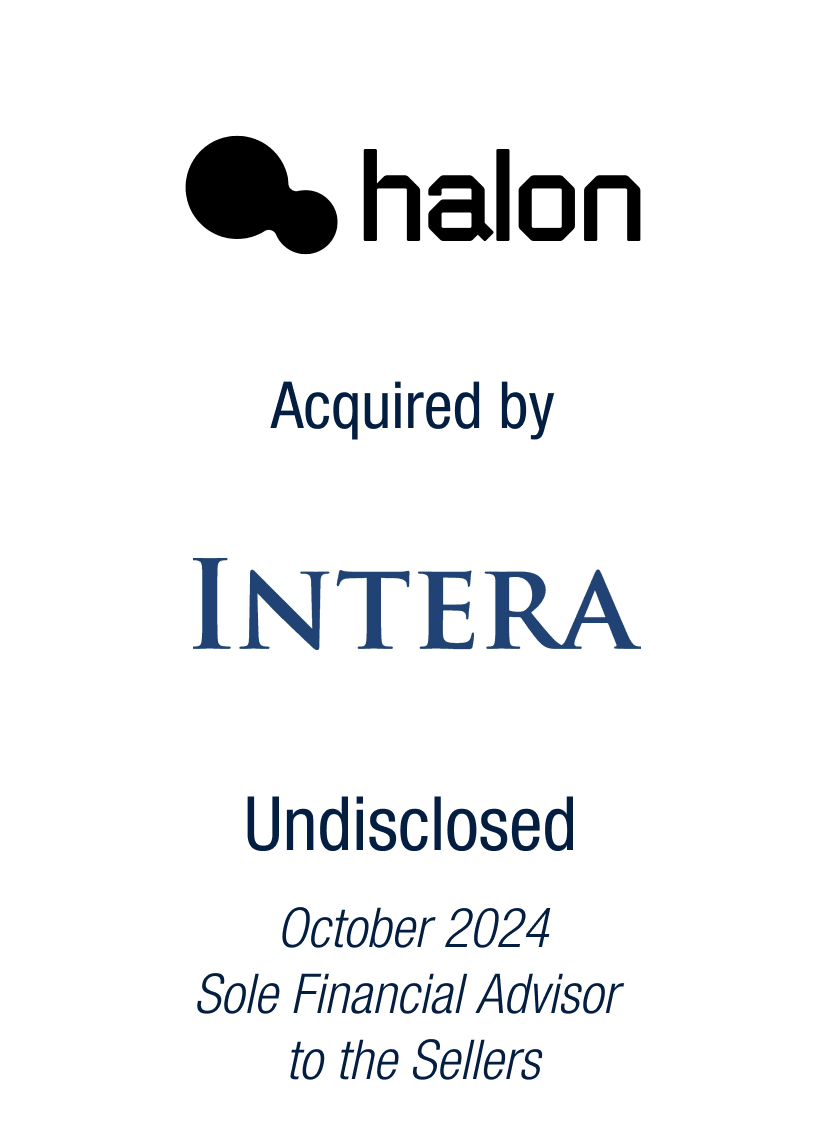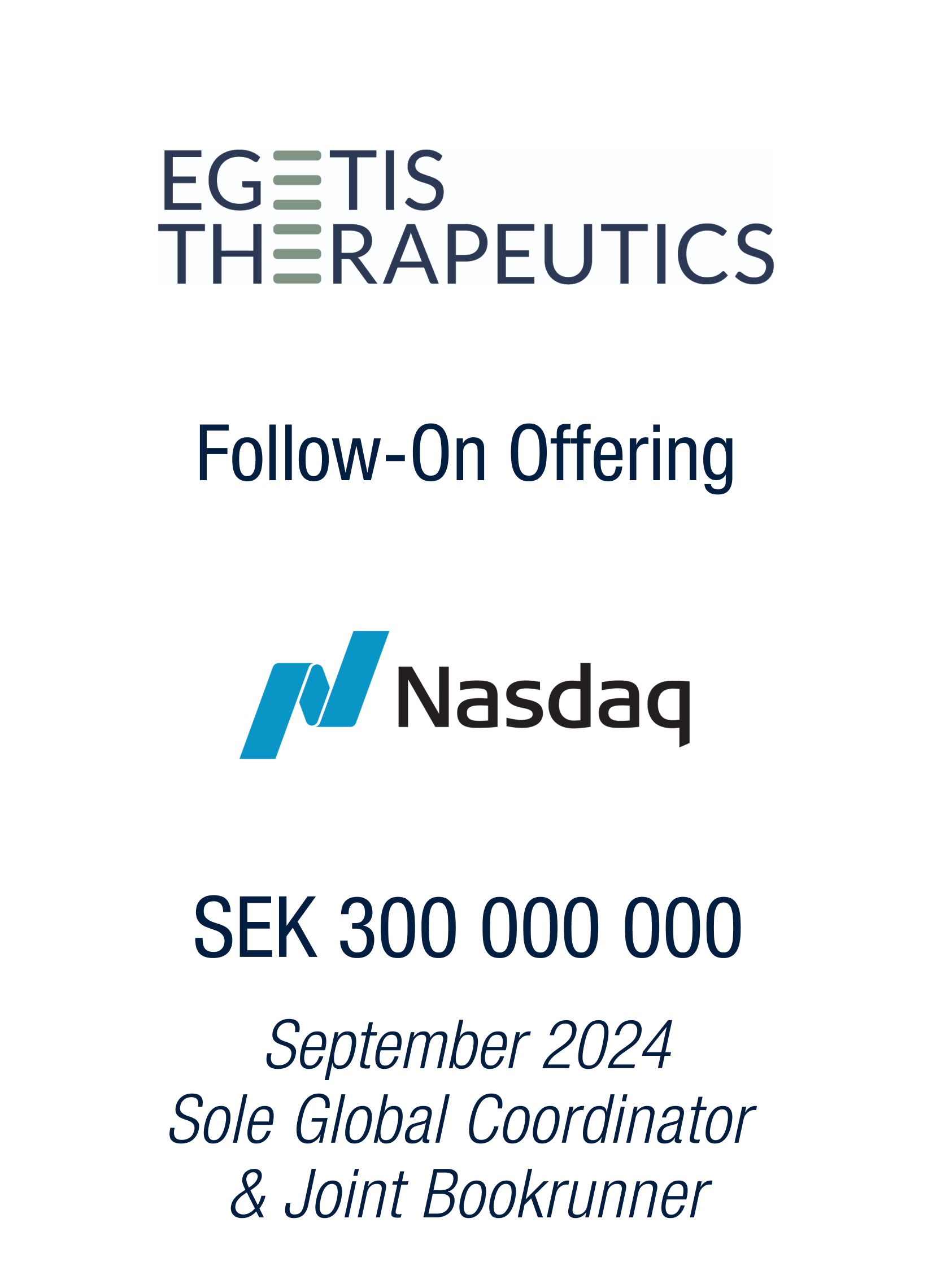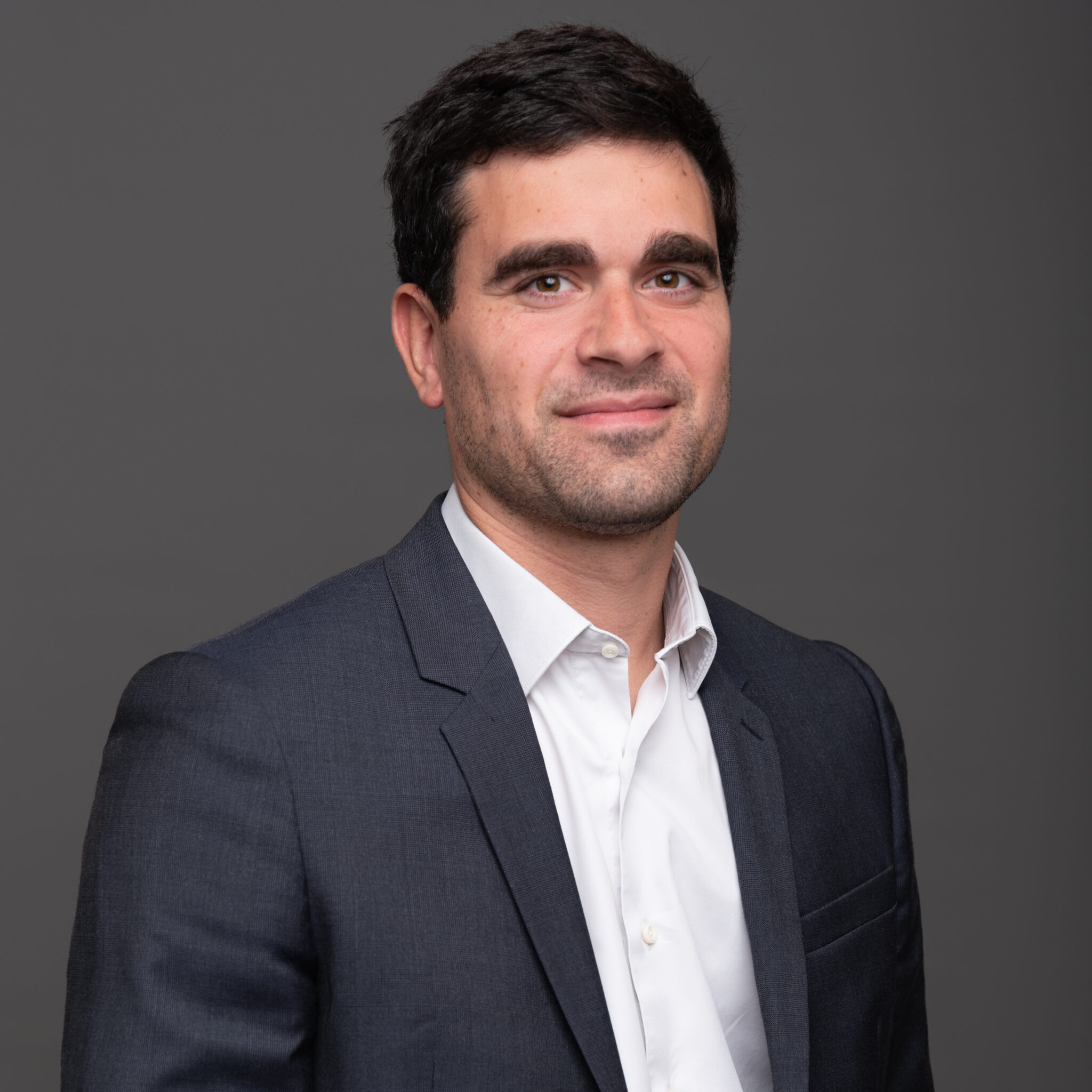Paul de Mestier's story: Healthcare Investment Banking Partner
We sat down with Paul de Mestier, Partner at Bryan Garnier, to learn more about his career path in healthcare investment banking.
Can you tell us about your career background and how you got into healthcare?
I started as a Healthcare Analyst at ABN AMRO before transitioning to a Healthcare Relationship Manager role at the affiliated Neuflize OBC bank. Before joining Bryan Garnier, I worked as an Associate Director for M&A Healthcare at Philippe Hottinguer Finance.
Throughout my career, I’ve aimed to build long-term relationships and deepen my expertise in the sector, covering various subsectors such as pharma, Medtech, and services. This focus has helped me gain a thorough understanding of the sector’s ecosystem, which is crucial when working with entrepreneurs who are looking for knowledgeable advisors.
Why did you choose M&A for your career?
Advising clients on significant strategic decisions and contributing to their growth and success both intellectually stimulating and highly satisfying. I believe that the most fulfilling part is building and maintaining a strong relationship with clients and becoming a trusted advisor.
I enjoy working with founder-owned or family-owned companies because the advisory role feels impactful. Advising entrepreneurs involves addressing fundamental business strategy and economic questions to help them find the best path for their company’s growth.
I enjoy working with founder-owned or family-owned companies because the advisory role feels more impactful.
What was the dynamic of Bryan Garnier Healthcare team when you arrived?
When I arrived at Bryan Garnier, we were boosting the M&A activity within the Healthcare practice, that was mainly known for its successful ECM deals including BioNTech, Moderna, and Valneva. We’ve since established ourselves in this vertical and expanded our reach to include Germany, the Nordics, the UK, and the US. We handle M&A, ECM, and private placements, and we can confidently say that we have significantly increased our footprint.
What initiatives have you launched since joining Bryan Garnier?
One of my key initiatives has been empowering junior team members by guiding them in identifying and contacting the right people. We identify and reach out to every relevant player, attend specialised fairs across Europe, and build deep relationships within our target subsectors. I also spent a lot of time developing a healthcare services practice and stepping up our M&A efforts alongside Hervé Ronin.
We are currently creating an ecosystem for healthcare companies to foster business development, have direct outreach and team collaboration.
What has been one of the most memorable deals you’ve worked on?
One standout deal was with CMN, a company owned by doctors with no business strategy or financial background. We presented them different options and found a strategic investor who was a great fit to help them grow. This deal was particularly challenging because the nuclear medicine sector is fragmented and not well understood by financial investors in France. We managed to secure a company valuation at a much higher multiple than the market average, using a comprehensive approach and crafting a strong pitch to investors.
What advice would you give to junior bankers?
Be curious, master your fundamentals early on and if possible, try to be sector specialised. Understanding the intricacies of a sector will make you more relevant in conversations with decision makers. Also, don’t be afraid to make cold calls and reach out to potential clients. Building relationships and showing initiative are crucial for development in this field, as this not only builds credibility but also leads to more meaningful and successful collaborations.
What would you tell your 25-year-old self?
Again: Learn the basics thoroughly and early on. My path was unconventional, and I had to pick up fundamentals later in my career, making the initial stages especially intense. Taking the time to master the technical aspects early on can make things easier down the line.
Understanding the intricacies of a sector will make you more relevant in conversations with decision makers.
The success of Adidas vs the struggle of Nike with Cédric Rossi, BG IRIS NextGen Consumer Analyst at Bryan Garnier
Following an insightful discussion with BG IRIS NextGen Consumer Analyst Cedric Rossi, Linda Pasquini penned an article in Reuters about the evolving landscape impacting Adidas and Nike. This summary highlights key points from the interview and includes a link to the full article.
Shifts in consumer preferences pose significant opportunities amidst challenges faced by Nike.
As Adidas continues to introduce captivating updates to its iconic lines like the Samba and Gazelle, interest in these products has surged globally, surpassing even longstanding favourites like the “Nike Air Force 1” in recent searches.
Analysts expect Adidas to report impressive second-quarter results, with projections hinting at its highest profit margin in three years. With the Euro 2024 football tournament expected to drive further demand, Adidas is strategically positioned under CEO Bjorn Gulden’s leadership to capitalise on these opportunities.
Despite this momentum, Adidas remains attentive to emerging competitors in the market, such as Hoka and Lululemon, which have gained significant traction.
Concerning Nike, Cedric Rossi noted intriguing trends in the market, with a noticeable contrast between Nike’s current trajectory and broader industry dynamics.
“Nike is less innovative than in the past and competition has increased, providing retailers with a wider range of brands to choose from,” notes Rossi.
Rossi also states that there is a huge contrast between what is currently going on at Nike and the rest of the industry, observing a stark contrast between Nike’s current position and the broader industry landscape.
Speculation among Wall Street analysts suggests the potential for a management restructuring at Nike before its upcoming autumn investor day.
Stay tuned for more insights from Bryan Garnier, renowned for its expertise in consumer trends and market dynamics.
Bryan Garnier’s NextGen Consumer team plays a crucial role in providing comprehensive insights and strategic advice to clients looking to navigate the complexities of the retail market.
Amazon Kuiper satellites with Antoine Lebourgeois, BG IRIS Research Associate at Bryan Garnier
Following an engaging conversation with BG IRIS Research Associate Antoine Lebourgeois, Capucine Cousin penned an article in L’AGEFI about the recent approval for deploying Amazon’s Kuiper satellites in France. This summary highlights key points from the interview and includes a link to the full article in French.
French telecoms regulator Arcep has just given Amazon’s low-earth orbit satellite internet access service the green light, but it is still lagging behind SpaceX’s mighty Starlink.
One of the major hurdles for Amazon is the readiness of its launch vehicles.
“Kuiper’s launch plan relies mainly on rockets that are not yet operational. This will likely be Amazon’s biggest hurdle in its race against SpaceX”, notes BG IRIS Research Associate Antoine Lebourgeois.
While Amazon has secured agreements for up to 83 launches with three rockets, these launchers were still under development when the contracts were signed and have faced delays since then. In contrast, SpaceX benefits from a fleet of reusable rockets, providing operational advantages for deploying and replenishing its Starlink constellation.
Amazon’s beta launch for Kuiper’s internet service is tentatively scheduled for late 2024, with a full commercial rollout anticipated in 2025, underscoring the company’s strategic intent to compete in the burgeoning satellite internet market.
Bryan Garnier’s satellite coverage team plays a crucial role in providing comprehensive insights and strategic advice to clients looking to navigate the complexities of the satellite communications market.
To further analyse this topic, read our in-depth industry brief exploring the dynamic landscape of satcoms.
2 minutes with Anne Glover: Making an impact in VC
We had the opportunity to interview Anne Glover, CEO and Co-Founder of Amadeus Capital Partners and a leading figure in the venture capital industry, about why she chose VC and what advice she would give to aspiring entrepreneurs. With 30 years of experience as a venture capitalist and 15 in investment in emerging markets, Anne has much to teach young entrepreneurs.
Anne Glover’s interview
For many, venture capital emerges as early-stage investors. Reflecting on her journey, Anne sees VC as being more of a partnership than a transaction, focusing on creating value and achieving success regardless of market conditions.
“Working with the most innovative entrepreneurs on the planet is just fundamentally so exciting, and then translating that into financial success is evidence of how we can change the world, disrupt the world, and deliver returns.”
Anne suggests that beyond achieving financial success, such partnerships can lead to transformative global impacts and disruptions. This viewpoint underscores how venture capital serves not only to generate returns but also to catalyse substantial changes in industries, reflecting a broader ambition to shape and influence the world through entrepreneurial ventures.
“It’s still true that you have to master your trade, whether it’s being a venture capitalist or an entrepreneur in a particular sector. It’s not something you can bluff.”
The venture capital industry is highly cyclical and influenced by external factors. External shocks can come from anywhere, making it impossible to predict market turns. True value creation comes from building great products and finding customers, irrespective of market conditions.
Anne notes that while Europe’s VC investment ecosystem has become more competitive and offers more choices to entrepreneurs, it still lags behind the US in terms of later-stage development. Developing a robust private sector ladder to support scaling companies is essential. This will allow companies to mature privately before entering public markets, ensuring they can withstand public scrutiny.
“The venture capital ecosystem has matured significantly over the past few decades. Technologists are now seeing entrepreneurship as a viable outlet for their innovations, which is a fantastic development.”
Anne finds immense satisfaction in seeing companies funded by her firm fundamentally changing industries. The realisation that their support was pivotal to a company’s success provides a profound sense of accomplishment.
Anne Glover’s journey and insights highlight the importance of vision, persistence, and genuine relationships in venture capital and entrepreneurship. Her experiences serve as an inspiration for aspiring entrepreneurs and investors, underscoring the transformative power of innovation and collaboration.
“I think too many people are impatient, constantly checking for immediate results. Instead, we need to nurture the ecosystem, understanding that superior returns will come with time.”
Satcoms' Muskonomics challenge
PARIS | June 26th, 2024 – BG IRIS, Bryan Garnier’s research platform, is pleased to release “Satcoms’ Muskonomics challenge”, an in-depth analysis exploring the dynamic landscape of satcoms and unveiling the intricate interplay between its main actors.
This industry brief is an assessment of the satcoms sector amidst the heightened risk of Starlink and Amazon duopolising the industry.
We also dive into three specific areas:
- The case for a Starlink-Kuiper duopoly: Learn about how these two satellite giants are poised to dominate satcoms
- The operators’ strategic stalemate: Explore how established operators are struggling to adapt to this new competition and are increasingly retreating to niche markets
- Space public & private and transaction activity: Get a glimpse into the current challenges faced by listed space companies
Within this industry brief, we also look at why gigaconstellations are likely to also target non-satellite markets, as well as providing a cost analysis of the different megaconstellations, and discussing the escalating debt costs and diminishing returns on capital of established operators. The report provides a full picture of what is happening in the satcoms sector today.
To dive deep into this topic and discover more about the changes affecting the satcoms market, download the industry brief.
Get the industry brief
Please complete the form below to receive the brief.
BG Growth Series - Boiron
bethsabee gresse
Welcome to the “BG Growth Series”, where entrepreneurs tell us about their inspiring stories, share invaluable insights, and offer practical tips to navigate the growth journey.
Boiron is a century old pioneering company in homeopathy, dedicated to developing, manufacturing, and marketing homeopathic medicines. Since 1932, Boiron has been sharing its passion for homeopathy with a compassionate, ecological, and comprehensive approach to medicine. Boiron’s journey is a testament to resilience and a long history of unmatched quality and innovation.
We sat down with the President and Chairman of Boiron to understand his vision and commitment to innovation. His leadership highlights the company’s deep roots in homeopathy with his family founding Boiron over 90 years ago, continuing to drive forward with passion and dedication.
In their latest phase of growth, Boiron sought a partner to continue developing the group internationally and make it a global leader in natural health. Bryan Garnier was selected for their expertise in mergers & acquisitions, debt financing and equity capital markets to support the family shareholders, the management team and the BOIRON Group at every stage of this complex transaction. The team demonstrated an exceptional ability in understanding Boiron’s unique needs and helping to find the right partner to support U.S. expansion – EW Healthcare.
Boiron’s journey showcases a fundamental shift in how we perceive and deliver medicine, providing an alternative that many healthcare professionals and patients worldwide appreciate for its efficacy. With visionary leadership and unwavering dedication, Boiron is poised to continue transforming lives on a global scale with a holistic and ecological approach to medicine.
Watch this episode of BG Growth Series to learn more about Boiron leading the way in homeopathic medicine.
Get in touch
Whether you’re at the outset seeking funding, or an established firm searching for strategic options, our team will provide you with tailored advice to help you reach your goals.
Our transactions
Bryan, Garnier & Co offers a complete range of investment banking services, from growth financing to mergers and acquisitions.
Jonathan Bohbot's story: Software and Tech-Enabled Services Investment Banking Partner
We sat down with Jonathan Bohbot to know more about his career trajectory and gain insights into how a 36-year-old banker has reached a Partner position at a global investment bank.
Can you tell us about your career background and what led you to your current position at Bryan Garnier?
I joined Bryan Garnier in 2015 as an Associate after working at PwC in their transaction services financial advisory sector. I wanted to transition to M&A to be more involved in the entire transaction process, from pitch to closing. I was looking for exposure, a dynamic work environment, and a role that would allow me to engage in the full strategy of a company’s development. After joining Bryan Garnier, I was promoted to Vice President within a year, and then to Managing Director in 2021. I became a partner in 2024. Throughout my career, I have specialised in software, IT services, and audio tech, advising on various transactions including LBOs, trade sales and private placements.
What motivated your interest in the tech environment, and how has that influenced your career?
I’ve always been interested in the tech sector and wanted to find my niche subsectors to provide genuine advice to our clients. I believe in sector-focused expertise because it is more valuable and critical to customers. This belief led me to focus on software, audio tech, and IT services.
“I was looking for exposure, a dynamic work environment, and a role that would allow me to engage in the full strategy of a company’s development.”
Can you share some notable deals you’ve worked on?
One notable deal was with EasyVista and Eurazeo in 2020. EasyVista is a renowned software company with roots in Europe and the US. We’ve been working with them over the last decade on strategic moves including PIPE transactions when the company was listed on Euronext, take-private led by Eurazeo, a debt financing with Blackrock, and multiple bolt-on acquisitions from there.
Another significant deal was with Arturia in the audio tech space, a highly specialised subsector where we have both the expertise and the right network to deliver custom advisory services. We advised the company in its two consecutive structured financing operationsin 2019 and 2021, meeting the client’s long-term goals.
Lastly, I worked on the sale of the French cybersecurity company Brainwave GRC to Radiant Logic, a US-based company backed by TA Associates. This high-profile transaction, involving strategic synergies and high valuation, exemplifies our added value for local businesses that want to expand globally.
What do you appreciate most about working at Bryan Garnier?
The boutique spirit at Bryan Garnier is meritocracy-based, meaning positions and rewards are earned through effort, regardless of age and background. This environment has allowed me to progress quickly and develop a sense of effort and determination to reach my goal of becoming a partner. The international mindset and diverse team skillset at Bryan Garnier have also created a fulfilling work environment.
What motivates you and keeps you going?
My motivation comes from various sources. Professionally, it’s about delivering on the promises and challenges I’ve set for myself. Additionally, the relationships with clients are incredibly motivating. Their trust and reliance on my advice inspire me to keep pushing forward. Personally, my family, especially my three children, provides a lot of energy and drive.
“The international mindset and diverse team at Bryan Garnier have also created a fulfilling work environment.”
What advice would you give to junior bankers?
Be curious about the deal environment and work on building long-standing relationships with clients. While technical skills are essential, understanding the market and being a reliable advisor are what differentiate a good banker from a great one.
What are your strategies and objectives in the short to mid-term as a Partner?
As a Partner, my focus will be on initiating primary software transactions with founder-owned companies. I aim to direct my efforts to primary transactions as it is crucial for establishing long-standing relationships with clients. Additionally, I plan to boost our focus in IT services, a sector I find promising, on top of my continued work in the software subsectors for the recent years.
What is your outlook and sentiment for your practice?
I see a strong pipeline of opportunities in 2024 and 2025. Retained assets from 2023 are coming to market, creating a positive outlook. Despite a slowdown in demand in 2023 and early 2024, we anticipate significant consolidation activities in IT services, driven by the need for companies to grow inorganically.
“While technical skills are essential, understanding the market and being a reliable advisor are what differentiate a good banker from a great one.”
Healthcare focus: the return of IPOs and M&As with Vincent Meunier, Healthcare Investment Banking Managing Director at Bryan Garnier
In a recent segment of Smart Bourse, we took a deep dive into the current state of capital transactions, IPOs, and M&A activity in the European healthcare sector.
Vincent Meunier, Healthcare Investment Banking Managing Director, shared valuable insights during the discussion and remained optimistic about a revival. Vincent emphasised the importance of IPOs, M&As and aftermarket performance as key indicators of market sentiment.
Upcoming biotech IPOs
Vincent sees particular investor interest in oncology and rare diseases, as well as significant investments in radiopharmaceuticals.
A renewed interest in M&A Activity
Vincent sees particular interest in oncology and rare diseases, as well as significant investments in radiopharmaceuticals.
“Over the last few months, there is a renewed interest in M&A for precisely these types of companies. In the field of oncology, we have seen a massive wave of investment with almost 10 billion dollars spent. Players on both sides of the Atlantic: Bristol Myers Squibb, Lilly, and in Europe, Novartis and AstraZeneca.”
The ambitions of AstraZeneca
AstraZeneca has spent nearly $5 billion on biotech M&A over the last six months, indicating a strategic focus on high-value areas like oncology and autoimmune diseases. This activity aligns with CEO Pascal Soriot’s ambitious revenue goal of $80 billion by 2030.
Future outlooks for the healthcare sector
Vincent ends with a cautiously optimistic outlook for the healthcare sector, with signs of recovery and strategic shifts towards long-term management, better funding, and strengthened companies ready for public markets.
He mentions AstraZeneca’s acquisition of biotech Amolyt Pharma as a success story, which in turn had a positive effect on their share price.
“Today, the situation has indeed changed for the better. In other words, a company in biotech or MedTech can find more funding, greater funding, and for longer periods, and therefore be strengthened in terms of management, governance, and capitalisation. By the time it goes public, the company is ready.”
As a full-service investment bank, Bryan Garnier is uniquely positioned to share insights on both IPO and M&A dynamics and provide tailored strategic advisory services to European growth companies.
Watch the full video with English subtitles here:
Educational Horizons
PARIS | May 27th, 2024 – Bryan Garnier is pleased to release “Educational Horizons”, an in-depth analysis exploring the dynamic landscape of modern education and unveils the trends that are reshaping how we learn and teach.
This paper takes a close look at the major factors affecting education today, how education services are growing and changing, and increasing attention from regulators.
We also dive into three specific areas:
- Learning Management Systems: Learn about the latest advancements in digital learning platforms
- Healthcare Education: Explore the unique challenges and opportunities in educating healthcare professionals
- Digital careers Programs: Get a glimpse into initiatives preparing individuals for digital careers
Within this white paper, we look at private equity investments as investors are favouring build-ups, and at how publicly traded education companies are faring on the stock market. The report provides a full picture of what is happening in education today.
To dive deep into this topic and discover more about education as a diverse and dynamic sector of the future, download the white paper.
Get the white paper
Please complete the form below to receive the report.
Bryan, Garnier & Co continues its growth and announces a series of promotions to strengthen its European presence
These strategic promotions come at a critical time as the financial sector faces various challenges, including heightened market volatility, inflationary pressures, and regulatory changes across the EU. Our team has successfully completed over 60 transactions in the past 12 months across our core sectors: Software & Fintech, Healthcare, Energy Transition & Sustainability, Industrial Tech, Business & Tech-Enabled Services, and NextGen Consumer. By bolstering our leadership team, Bryan, Garnier & Co aims to address these issues with enhanced expertise and stability and providing robust advisory services to clients, adapting to the evolving economic landscape.
Greg Revenu, Co-founder and Managing Partner of Bryan, Garnier & Co, comments “We are very pleased to be promoting our talent in line with the organic growth of our franchises, which attract many talented individuals and enable them to develop and progress rapidly in their careers in support of our clients. With these promotions, Bryan Garnier continues to grow steadily and now has more than 80 Directors, Vice Presidents & Associates, 20 Managing Directors and 16 Partners in Europe, including two new Partners – Jonathan Bohbot and Paul de Mestier – who were promoted this year.”
Olivier Garnier, Founder and Managing Partner of Bryan, Garnier & Co, adds “These promotions demonstrate our commitment to excellence and to the collective growth of Bryan Garnier, both in our sector specialisations and in our transactional expertise. This year we have been keen to promote our top performers in 4 key verticals – ECM, Healthcare, Cleantech, and Debt Capital Solutions. By investing in our teams, we are consolidating our positioning and strengthening our ability to support growth stocks over the long term in constantly changing markets.”
Grégoire Angleys is a Managing Director in the Equity Capital Markets team in the Paris office with pan-European coverage. He has over 10 years of Investment Banking experience in ECM with private placement capabilities and track-record. Before joining Bryan Garnier, he worked at Europe Offering advising US-based hedge funds investing in European healthcare and technology companies through structured products. Grégoire holds an Advanced Masters in Corporate Finance from emlyon business school and Master’s degree in Corporate and Market Finance from Grenoble IAE.
Grégoire Angleys states “I am proud to pursue my journey at Bryan, Garnier & Co, backing European companies at the forefront of innovation. Our DNA is as the trusted advisor across the lifecycle of our clients, bringing tailored solutions and thoughtful advice to founders, managers and shareholders in fast-evolving environments. Bryan, Garnier & Co’s expertise is deeply rooted in sustainability, as demonstrated with our deals with Waga Energy, Carbios and Avantium. I look forward to continuing to back the visionary teams that create technologies and solutions to address our world’s biggest challenges, notably the green transition.”
Raphaël Bidaut is a Managing Director in the Healthcare practice and located in our London office with pan-European coverage. He joined Bryan Garnier in 2021 and has over 12 years of Investment Banking experience in the Healthcare sector and initially as an ECM specialist in IPOs, follow-ons and convertibles bonds for large and mid-cap companies. Raphaël graduated from Edhec Business School with a dual Master in Corporate Finance and Management.
Raphaël Bidaut states “I am honoured to be promoted after a record year from many different perspectives for the Bryan Garnier Healthcare franchise. I look forward to supporting more healthcare entrepreneurs and investors and continuing to develop our activities internationally in coordination with our 7 offices. Our Healthcare team has collectively a unique sector, M&A and equity/debt fundraising expertise. I am excited to continue leveraging them for CRO, CDMO, consumer healthcare companies and care providers.”
Paul de Froment is Managing Director in Bryan Garnier’s research team IRIS and Head of the Cleantech research team. He is based in Paris and joined Bryan, Garnier & Co as an Equity Research Analyst in 2021. He previously worked at Kepler Cheuvreux for more than six years as an Equity Research Analyst focusing and small and mid caps, where he developed a solid knowledge in the fields of tech and biotech industrials. Paul holds a Master’s degree from La Sorbonne and Sciences Po Bordeaux (MSc Finance and Capital Markets).
Paul de Froment states “I strongly believe that Bryan, Garnier & Co’s unique combination of deep sector expertise and market vision will continue to position it as a key player in the Energy Transition & Sustainability landscape. Stepping into the role of Managing Director at IRIS, my focus will be on seeking innovative and valuable insights in cleantech and continuing to build a reference team in the sector. I’m committed to supporting companies as they embrace new technologies and sustainable practices to accelerate the shift to a cleaner world.”
Will is a Director in the Debt Capital Solutions team and located in our London office with pan-European coverage. Prior to joining the firm, Will served as consultant to Bryan Garnier during which he executed several ECM and DCM deals across the Technology and Healthcare sectors. Will has a structured finance background, having spent five years working with UK property developers and operators. Prior to his career in structured finance, he worked within Deloitte Consulting’s Finance practice. Will holds an MBA from the Wharton School.
Will Jungman states “At Bryan, Garnier & Co. we pride ourselves on finding bespoke financing solutions which fit our clients’ needs. In an environment of higher interest rates and lower equity risk appetite, we have created and expanded our Debt Capital Solutions offering to provide a variety of non-dilutive or minimally-dilutive private debt products. These include landmark deals such as the structured debt financings of Abivax and Calliditas. My goal as a Director is to educate our clients on the types of private debt available to strengthen their balance sheet and fund their growth, while leading our experienced team in executing fundraisings in venture debt, growth lending, convertibles, and other private debt for European growth companies.”






























